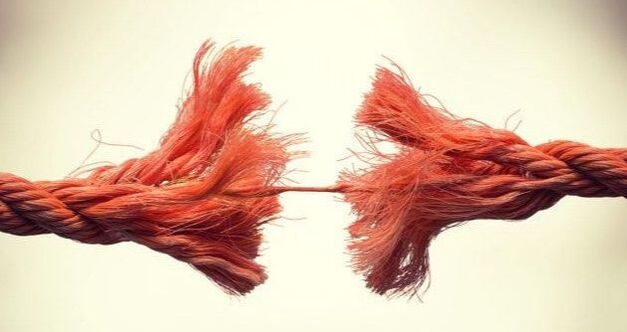Sometimes this trust is earned. Consider your friend who has built it over decades or the medical expert through education and practice. But in the case of driving down the highway, we give it without a second thought. This implicit trust is a good thing. It is what makes our society so livable. We make assumptions that our fellow man and woman will take the ethical high ground. And with rare exceptions, this trust is warranted and reciprocated. Imagine a world where it didn’t exist, a lifetime filled with anxious moments wondering if someone was holding up their end of this unspoken agreement.
This baked-in trust is fundamental to a benevolent civilization, but in the midst of the COVID-19 pandemic—when you could argue it is most needed—I feel as if it is in jeopardy. Consider any news program, social media post, or press release. Do you trust the reporting and the statistics? Do you trust the data and its interpretation? Do you trust the person providing the information? If you answered No, that is probably a good thing. For instance, if you trusted President Trump in February, you thought the virus would be miraculously gone by now and we’d have a vaccine, if you trusted him in March, you thought the flu was worse than the Coronavirus and everyone would be tested by now, and if you trusted him in April, you might have literally drunk bleach. If you trusted Beijing’s initial reports, you’d believe Coronavirus killed far fewer people than it actually did in Wuhan. If you trusted the Bakersfield doctors, you would have too much mis-extrapolated information to even process. If you trusted certain memes, you’d believe that dolphins are swimming in the Venetian canals. In some cases, finding out that we shouldn’t have trusted the source is fairly benign and non-consequential (if you want to daydream about dolphins squeaking while jumping over the Rialto Bridge, what harm is there in that?). But the others are breeches of our trust with the potential for catastrophic consequences. Trust is wholly dependent on truth, and like so many virtues, it can take a lifetime to build and seconds to evaporate. Truth, likewise, depends on trust. We tend to only speak our deepest truths to our most trusted friends or proven experts. But we also trust, more generally, that we, as humans, are all playing for the same team. We default toward trusting that we will individually take the high road for the collective good. Part of what keeps our societal fabric so tight is the thread of freely-given trust woven throughout it. And that is why our cultural trust is in jeopardy. When we cannot trust that public officials, medical experts, the media, and the President of the United States, are playing for the same team, who do we turn to for leadership? Now is not the time for our basic trust in each other to erode. Over the coming months, treatments and vaccines are going to be available. We need to trust public health officials to make the ethically appropriate decision on distribution measures. Incidentally, there is no ‘right’ way to do so. One could argue first-come-first-serve, life years, quality of life, best chance of survival, instrumental societal value, among others. The key here is that we trust medical ethicists to make the best decision given the set of parameters. Further, there are many more viruses like this that could strike down the road. We need to trust that our government will fund the studies to get ahead of the next crisis. We need to trust that when our governor issues another month of social distancing, he or she has our interests in mind and is not motivated by political reasons. We are going to have to trust that our education system is actively looking for creative way to engage students. On a personal level, one day we are going to go to a pub to meet friends. Like passing drivers on the highway, we will have to trust that everyone has taken proper precautions or they wouldn’t be there. Skepticism is not inherently bad. Skepticism can further discussion, spur debate, and lead to an optimal course of action. Cynicism, on the other hand, offers little value. It halts discussion, ends debates before they start, and leads to self-interested action. However, it is becoming more prominent with every news cycle. While conspiracy theories, fact-massaging, convenience sampling, and ulterior motives are nothing new to 2020 or COVID-19, they have been accentuated by the current imperative for information. This makes us more vulnerable to losing faith in each other, to cutting that thread of trust, and ultimately, to a cynical society. I believe we can course correct. But it will require a certain tuning-out of the loudest voices and a tuning-in of the quieter ones. These could be people who have earned your trust and those who have simply not lost it. Most of us are on the same team, individually striving for the collective good. I want to trust passersby freely and, likewise, I want them to trust me. Perhaps if we maintain and strengthen our communal faith in each other, it can rise to those people threatening to corrode it. Trust me.
2 Comments
Laurie Loewenstein
5/5/2020 09:07:08 pm
Some of these trust issues have been simmering for decades and longer. I am thinking of the distrust many Black folks have of the medical community. Much of this distrust is warranted...the Tuskegee Study is one example. As you said, truth and trust are interdependent. I agree that trust is needed now more than ever.
Reply
Colin Gabler
5/21/2020 06:57:01 am
I agree, Laurie. The trust issues are often warranted, which makes building it an even bigger challenge. Thanks for reading :)
Reply
Leave a Reply. |
AuthorColin Gabler is a writer at heart. Archives
May 2024
Categories |

 RSS Feed
RSS Feed